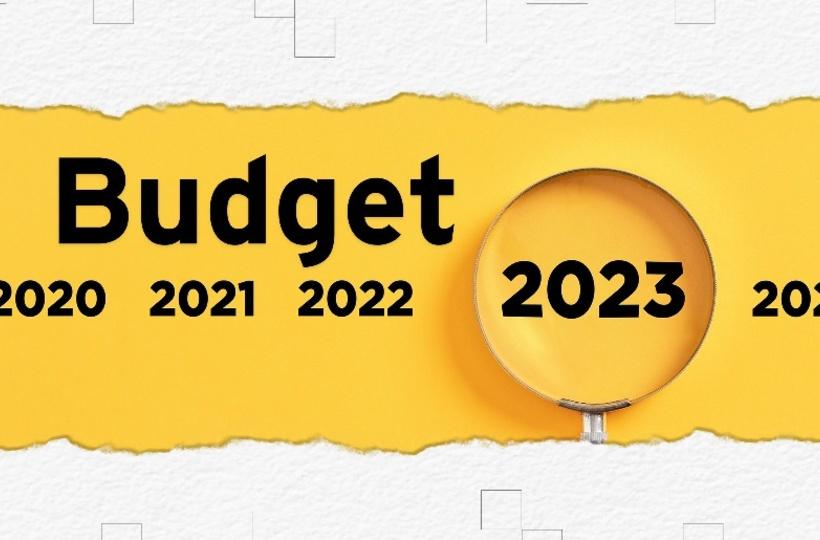What do taxpayers expect from the budget for 2023?

As Budget 2023 approaches and the finance minister begins her pre-Budget conversation with industry experts, taxpayers are expressing a range of expectations. Budget 2022 offered little personal tax breaks, thus expectations are high for Budget 2023 to be more budget-friendly. 
Changes to tax slabs and rates – Tax slabs and rates haven’t changed much in a while. Budget 2020 included a new tax system with reduced tax rates if one forgoes certain deductions and exemptions, while the ordinary tax rates for people remained the same. A reduction in individual income tax rates would be desirable because of rising living expenses and loan interest rates, which would help people regain their buying power.The best combined blended strong earnings tax rate in India is 42.744% (plus surcharge and cess).
The tax rate is much higher than that of neighbouring countries Malaysia (30%), Singapore (22%), and Hong Kong (17%). Modifying India’s tax rates would also make the nation more appealing to locals and prevent cash from fleeing the nation. The government may choose to increase the top tax rate threshold from Rs. 10 lacks to Rs. 20 lacks and decrease it from 30% to 25% in order to bring it into line with the ordinary corporate income tax rate.
The income tax rate might be 20% for income bands between Rs 10 lakh and Rs 20 lakh and 25% for income over Rs 20 lakh to make the new tax system appealing to taxpayers. Income received through savings accounts with a bank, post office, or cooperative organization engaged in the practice of banking is eligible for a deduction under section 80TTA of the Income Tax Act of 1961. This deduction is only applicable to interest earned during the previous income tax system.
The deduction cap hasn’t changed since it was first implemented in FY 2012–2013. The government ought to take into account raising the cap from Rs 10,000 to Rs 50,000 when interest rates climb. To encourage taxpayers to save money, it would also be a good idea to include interest on fixed deposit accounts with banks under this clause.
Deduction for child education expenses: It is becoming increasingly difficult for parents to provide their children with a high-quality education due to rising educational costs and fierce competition on the academic front that begins as early as elementary school.Currently, section 80C of the Act permits a deduction for expenses related to child-related education costs up to a total of Rs. 1.5 lakh. However, this deduction is sometimes overlooked in favor of the many other costs and investments covered by this provision.
However, it is impossible to overstate the value of education, and as a result, this cost needs to be eligible for a distinct deduction, much as payments for health insurance. As a result, the government could think about adding a unique section under Chapter VIA of the Act to permit a deduction for educational costs.
Increase in the health insurance tax exemption threshold – To compensate for anticipated or unforeseen medical costs that a taxpayer may have to incur, they need to obtain health insurance. Medical insurance rates have increased dramatically along with the expense of medical care, particularly since the brand-new coronavirus outbreak. The government may think about raising the deduction cap under section 80D of the Act from Rs 25,000/Rs 50,000 to Rs 50,000/Rs 1 lakh in order to encourage people to get medical insurance.
The Maternity Benefit Act was changed in 2017 to require companies to offer mothers several forms of help during maternity time, one of which is a creche facility nearby the workplace where parents may leave their children while at work. Given that this is a regulatory obligation for major organizations, many businesses have provided their staff with these amenities.
However, the benefit is viewed as a perquisite and is taxable in the hands of an employee in the absence of any particular regulations exempting such benefit from tax. It just makes logic that since the government has mandated the provision of the benefit, the employee shouldn’t be required to pay taxes on it.
Therefore, the government could think about excluding the creche facility benefit that is provided to employees through either an employer-maintained facility, a provider-employer agreement, or a reimbursement/allowance for such charges.
Tax deduction for buying an electric vehicle (EV) Green transportation has grown significantly in importance in recent years as a step toward an eco-friendly world. Additionally, people are becoming more aware of efforts to combat global warming and cognizant of the need to minimize their carbon imprint. Nowadays, more people are choosing to purchase EVs. The Act’s Section 80EEB was included in the Budget 2019 to offer a deduction for interest paid on loans used to buy electric vehicles.
Currently, to qualify for a deduction under section 80EEB, a person must take out a loan to buy an EV on or before March 31, 2023. The duration of this requirement might be increased by at least two years, or until March 2025. To increase the usage of EVs, the government may also think about giving first-time EV customers who self-finance their vehicles a discount for a portion of the cost of their vehicle. As a result, those who use their own money to buy a car will also be encouraged to choose an EV.
Deduction for company expenditures incurred when working from home – During the epidemic, working from home was sometimes the only viable option for many organizations. Every action has to be conducted virtually. This offered a fresh perspective on how companies may function.
In the post-Covid age, many organizations have switched from the conventional work-from-office paradigm to alternative working arrangements including working from home, remote working, and hybrid working.When an employee works remotely, the company offers a variety of perks, including a desk, chair, tea and coffee maker, lighting, ventilation, air conditioning, canteen, etc.None of these perks are taxable to the employee and are all deducted when determining the firm’s taxable revenue.
When an employee works from home, he is responsible for paying for these necessities out of pocket, with no tax benefits. Therefore, the government can think about easing the burden on these workers by proposing deductions for some permissible costs related to working from home and/or an exemption for any work-from-home benefits provided by companies to employees who work remotely or from their homes.
Allowance for Working from Home, Increased 80C Exemption
According to Archit Gupta, the salaried workers anticipate that those who set up a home office to work from home should receive some respite. To find out how many of the expectations from Budget 2023 were met, everyone will have to wait until the first of February 2023. The standard deduction is a deduction made from gross pay income for employees and pensioners. The standard deduction reduces a person’s taxable salary income, which also decreases their tax liability. All salaried employees are eligible for a Rs 50,000 deduction under the previous tax system, which is still used by the majority of filers.
Expand the 80c exemption
Salary earners use Section 80C exemptions to reduce their taxable income by Rs 1.5 lakh every fiscal year. The exemption level should be increased to Rs 2.5 lakh in the Budget 2023, according to a memorandum from the Institute of Chartered Accountants of India (ICAI). According to experts, more deductions and exemptions encourage people to save for retirement. In order to expand the social security net to a sizable, older population, these technologies are crucial and may require further limitations, according to Ashish Misra, Chief Operating Officer (COO), Retail Banking, Fincare SFB.

One of the highest tax rates in the world is 42.74 percent. Maximum personal IT rates range from 15% in Hong Kong to 22% in Singapore, and from 18% in Sri Lanka to 25% in Bangladesh. With the exception of the current rollout of a concessional income tax system, the income tax bands have not changed since the Budget 2016–17. Under the current system, the highest tax rate is 30% for those with incomes exceeding Rs 10 lakh. Reduced income tax rates and raising the basic exemption threshold from Rs 2.5 lakh to Rs 5 lakh are considered crucial by experts. They want the highest slab rate in the 2023 budget to be reduced to 25%.
Edited by Prakriti Arora




